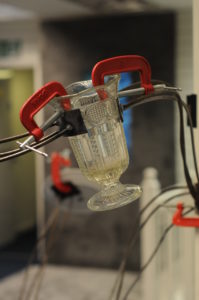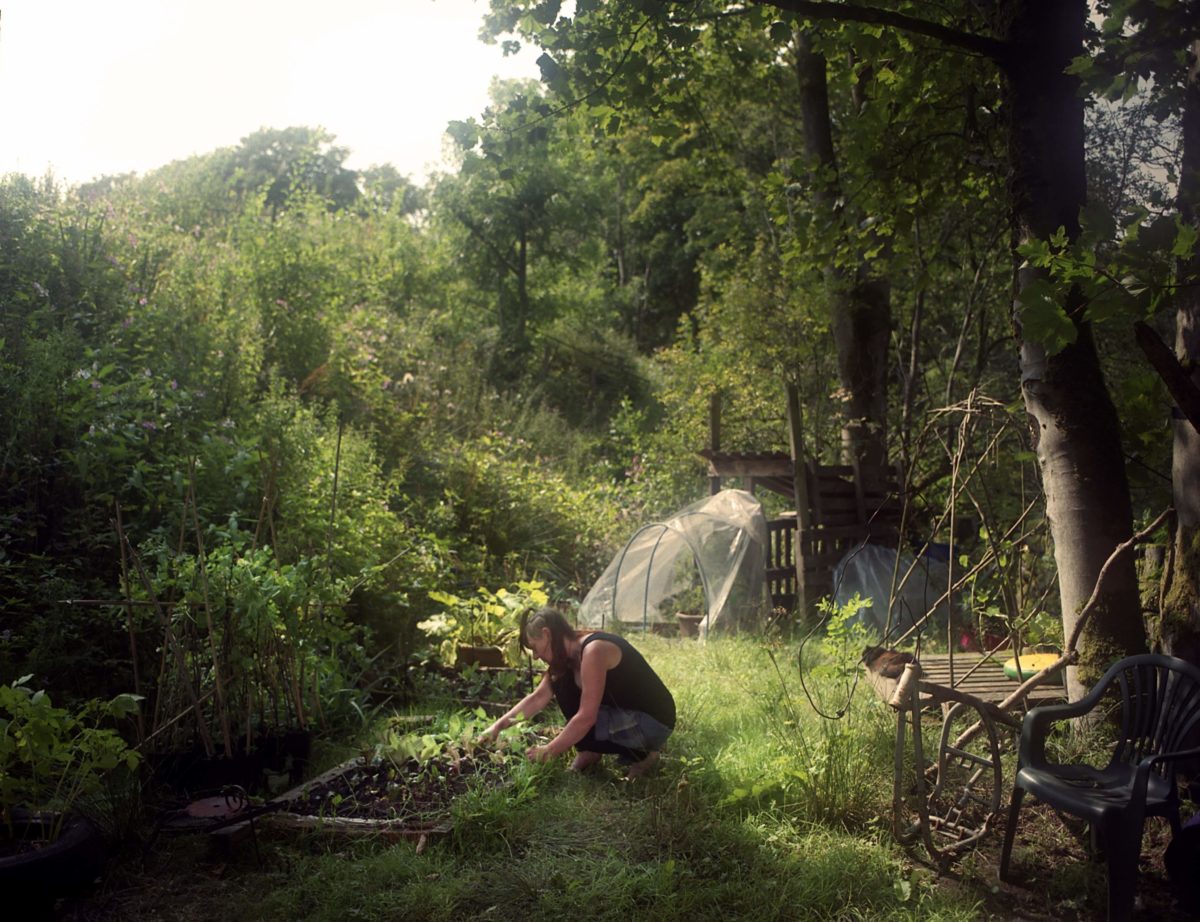Photograph by Orrin Saint Pierre

Discover more on the following pages:
Beginning with an interest in breathing spaces, sanctuary and refuge, my practice has led me to consider my impact as an artist within the anthropocene; to think about the connections, separations and becomings of material, bodies and matter, and to investigate the in-betweens, liminal spaces and dynamic edges.
Over the last year, I conducted this research through experiments within the studio – using script, sculpture, sound, performance and film. I continued researching approaches to meditative moments and spaces and to further explore ideas around our encounters, our relationships and connections with nature, across species, and with each other.
Before the lock-down I had been considering the transformative and impactful production processes involved in art-making. I began taking a new approach: practicing ways of collecting and connecting materials, becoming embodied in life, words, actions and objects, without penetrating, mining or severing anything. You can see some of this work here at: creative-destructive.
I turned my attention to the original principles of permaculture and became interested by this philosophy -especially around creating sustainable production systems. I wanted to try to live-in and live-by these principles, to immerse myself in an off-grid experiment.
In March, at the start of lock-down, I took the decision to self-isolate on a piece of waste land near Blackburn, Lancashire. This living-in and living-by, then became my research method for my MA, providing insight for both my practical and my dissertation work. Over a period of six months, I lived in my van, without mains electricity or running water. I kept a visual diary of the time, the changes of seasons, and the adaptions to my set up, which you can view at the bottom of this page. I also created a book: The nettles will provide, and you can view the short film that I created below.
I was interested in exploring an intuitive and immersive practice which would challenge my human resourcefulness and raise ideas around connectivity, transformation, and mindful moments of grieving, embodiment, and ‘being’ with myself. Through this process of becoming aware of myself, in an unprecedented time, and as a way of marking something, without impacting on my environment, I began to explore my own voice, as a new expressive tool, within my practice, creating recorded dialogues to moments, specific places and daily off-grid activity. You can listen to my humming practice here.
Implicit within these ‘return’ or ‘pause’ spaces, is the acknowledgement of what is being lost, a connection to each moment, and an understanding of what is changing. I began carving spoons, as a way of marking time: tangible evidence of my presence in a collection of moments that were passing.
Living off-grid made me more acutely aware of how dependent we are, and how caught up we are, in systems which perpetuate inequality, unsustainable production and unnecessary consumption. Our time is monetised, and bathing – (like ‘time wasting’ and daydreaming), is treated as non-essential, a luxury. I decided to make an art practice from the process of taking time to bathe. After exploring different outdoor, off-grid bathing experiences I began to create a bath from scratch. You can find out more about the bathing project here.
My final work became a series of bath meditations. These are sound recordings, (recorded performances from the mobile bath), of me taking bath-time in different outdoor locations.

